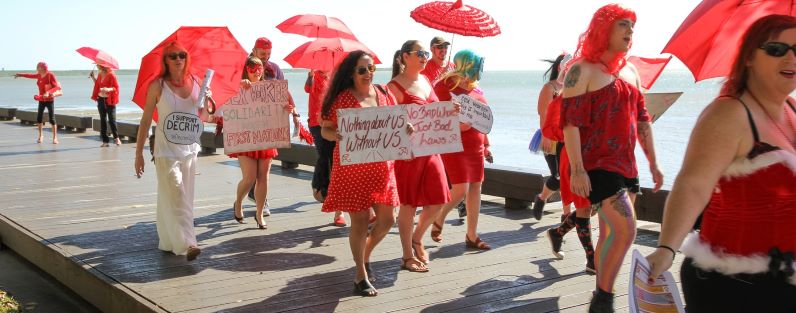Laws in Queensland criminalise essential safety strategies, forcing sex workers to choose between working safely or legally.
Sex workers are calling for decriminalisation.
The Criminal Code 1899 (Qld) Chapter 22A makes it illegal for independent sex workers to:
- do bookings together, share a workspace or work in the same building
- message another sex worker about their current location
- check-in and check-out with another sex worker when a client arrives and leaves
- employ a receptionist or someone to answer our phones
- use a driver another sex worker uses and recommends
“As sex workers we deserve the right to safety and protection at work, in the same way as other small business owners or service providers” said Hope Sweet.
Sex workers should not have to endure illogical, unworkable, unsafe laws and should not be regulated by the police.
“The intention of the laws in Queensland was to legalise sex work and remove police from control of the industry after the Fitzgerald Inquiry found excessive levels of police corruption. Instead, the laws have created a workforce suffering under illogical laws enforced by police–diverting police resources away from serious crime” said Elena Jeffreys, State Coordinator, Respect Inc.
Sex workers in Queensland are calling for the laws to be repealed and replaced by decriminalisation, a model that delivers improvements for sex workers and removes police from the regulatory role.
The sex industry has been decriminalised in New Zealand for more than a decade and it has been shown that conditions have improved for sex workers. Seventy percent more sex workers are now likely to report crimes to the police , and police and the justice system now respond more effectively and more fairly when crimes are reported.
“As sex workers in Queensland, we carry the burden of these failed laws. Imagine every day making an assessment between working legally or safely. It’s not sex work that is dangerous, it is laws that prevent us implementing safety strategies that are simply good business practices” said Carly de Franco.





